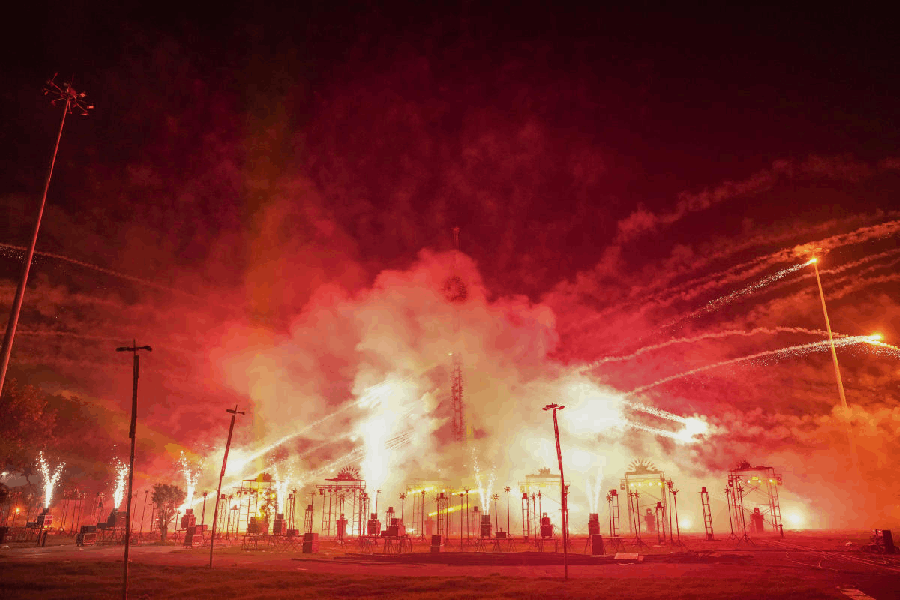Diwali is supposed to signify the symbolic triumph of light over darkness. Each year, however, the festival bears evidence of light losing the battle against a particular kind of darkness: sound pollution. This year, unfortunately, was no different, notwithstanding such legal strictures as a specific window of time for bursting green crackers only. In reality though, crackers — legal and illegal — deafened Calcuttans and their suburban peers well after 10 pm, the deadline set by the court. Even silent zones were not spared, with decibels exceeding permissible limits. The elderly and the infirm were particularly inconvenienced as a result. That crackers are a serious health hazard and an environmental pollutant is an undisputed fact. The law, though, cannot be blamed for this lawlessness: legal deterrents against sound pollution do exist. The blame for this annual capitulation to the sound demon must be squarely placed on institutions that are supposed to uphold the relevant laws. Light was shone on several institutional lacunae this Diwali as well. For instance, it has been pointed out that those wanting to buy green crackers could not differentiate them from those that were banned. This made it difficult for buyers to know whether the crackers they bought complied with the established stipulations. The police conducted the mandatory testing of fire crackers five days before the festival but other agencies, including the State Pollution Control Board, were leaden-footed. The lack of coordination among these bodies was evident. The Petroleum and Explosives Safety Organisation, which is supposed to verify whether firecrackers adhere to noise pollution norms, apparently lacks field testing equipment in Calcutta. This noisy, despairing picture was more or less consistent across metropolises in the country: the lapses, too, were a shared blight.
There is another aspect to the problem that must not go unnoticed: this pertains to the public apathy to — indeed complicity in — this malaise. That firecrackers have a deleterious impact on environmental and public health is not a secret. Yet, people’s enthusiasm for noise remains undiminished. Worse, in recent times, there has even been a tendency to defend this violation on the grounds of religious freedom. Even the Supreme Court’s strictures have been confronted by such bigotry. This communalisation of an environmental and health hazard is a new challenge that needs to be confronted by not just policy but also the people themselves. Otherwise, their complaints against foul air, whether the morning after Diwali or in winter, would smack of double standards.










